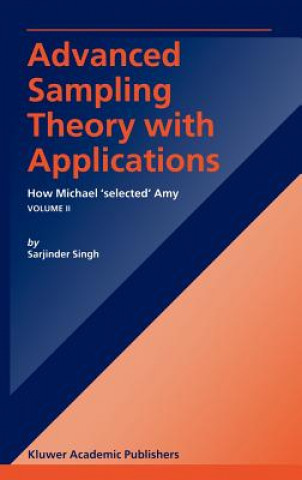
Kód: 05256092
Advanced Sampling Theory with Applications
Autor S. Singh
Advanced Sampling Theory with Applications: How Michael "selected" Amy is a comprehensive exposé of basic and advanced sampling techniques along with their applications in the diverse fields of science and technology.§This book is ... celý popis
- Jazyk:
 Angličtina
Angličtina - Vazba: Pevná
- Počet stran: 1219
Nakladatelství: Springer Netherlands, 2011
- Více informací o knize

2817 Kč
Dostupnost:
50 % šance Máme informaci, že by titul mohl být dostupný. Na základě vaší objednávky se ho pokusíme do 6 týdnů zajistit.
Máme informaci, že by titul mohl být dostupný. Na základě vaší objednávky se ho pokusíme do 6 týdnů zajistit.Prohledáme celý svět
Mohlo by se vám také líbit
-

With Marilyn
1658 Kč
Darujte tuto knihu ještě dnes
- Objednejte knihu a zvolte Zaslat jako dárek.
- Obratem obdržíte darovací poukaz na knihu, který můžete ihned předat obdarovanému.
- Knihu zašleme na adresu obdarovaného, o nic se nestaráte.
Informovat o naskladnění knihy
Zadejte do formuláře e-mailovou adresu a jakmile knihu naskladníme, zašleme vám o tom zprávu. Pohlídáme vše za vás.
Více informací o knize Advanced Sampling Theory with Applications
Nákupem získáte 282 bodů
 Anotace knihy
Anotace knihy
Advanced Sampling Theory with Applications: How Michael "selected" Amy is a comprehensive exposé of basic and advanced sampling techniques along with their applications in the diverse fields of science and technology.§This book is a multi-purpose document. It can be used as a text by teachers, as a reference manual by researchers, and as a practical guide by statisticians. It covers 1165 references from different research journals through almost 1900 citations across 1194 pages, a large number of complete proofs of theorems, important results such as corollaries, and 324 unsolved exercises from several research papers. It includes 159 solved, data-based, real life numerical examples in disciplines such as Agriculture, Demography, Social Science, Applied Economics, Engineering, Medicine, and Survey Sampling. These solved examples are very useful for an understanding of the applications of advanced sampling theory in our daily life and in diverse fields of science. An additional 173 unsolved practical problems are given at the end of the chapters. University and college professors may find these useful when assigning exercises to students. Each exercise gives exposure to several complete research papers for researchers/students. §The data-based problems show statisticians how to select a sample and obtain estimates of parameters from a given population by using different sampling strategies, systematic sampling, stratified sampling, cluster sampling, and multi-stage sampling. Derivations of calibration weights from the design weights under single phase and two-phase sampling have been provided for simple numerical examples. These examples will be useful to understand the meaning of benchmarks to improve the design weights. These examples also explain the background of well-known scientific computer packages like CALMAR, GES, SAS, STATA, and SUDAAN etc., used to generate calibration weights by most organizations in the public and private sectors. The ideas of hot deck, cold deck, mean method of imputation, ratio method of imputation, compromised imputation, and multiple imputations have been explained with very simple numerical examples. Simple examples are also provided to understand Jackknife variance estimation under single phase, two-phase [or random non-response by following Sitter (1997)] and multi-stage stratified designs. §This book also covers, in a very simple and compact way, many new topics not yet available in any book on the international market. A few of these interesting topics are: median estimation under single phase and two-phase sampling, difference between low level and higher level calibration approach, calibration weights and design weights, estimation of parametric functions, hidden gangs in finite populations, compromised imputation, variance estimation using distinct units, general class of estimators of population mean and variance, wider class of estimators of population mean and variance, power transformation estimators, estimators based on the mean of non-sampled units of the auxiliary character, ratio and regression type estimators for estimating finite population variance similar to proposed by Isaki (1982), unbiased estimators of mean and variance under Midzuno's scheme of sampling, usual and modified jackknife variance estimator, estimation of regression coefficient, concept of revised selection probabilities, multi-character surveys sampling, overlapping, adaptive, and post cluster sampling, new techniques in systematic sampling, successive sampling, small area estimation, continuous populations, and estimation of measurement errors.
 Parametry knihy
Parametry knihy
Zařazení knihy Knihy v angličtině Mathematics & science Mathematics Probability & statistics
2817 Kč
- Plný název: Advanced Sampling Theory with Applications
- Podnázev: How Michael selected Amy Volume I
- Autor: S. Singh
- Jazyk:
 Angličtina
Angličtina - Vazba: Pevná
- Počet stran: 1219
- EAN: 9781402016899
- ID: 05256092
- Nakladatelství: Springer Netherlands
- Hmotnost: 2188 g
- Rozměry: 240 × 160 × 34 mm
- Datum vydání: 24. January 2011
Oblíbené z jiného soudku
-
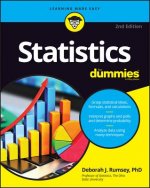
Statistics For Dummies, 2nd Edition
496 Kč -
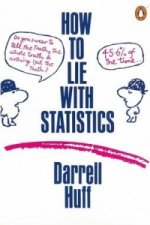
How to Lie with Statistics
303 Kč -

Naked Statistics
386 Kč -
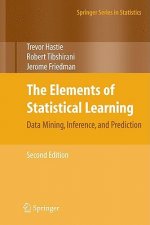
Elements of Statistical Learning
2200 Kč -

Theory That Would Not Die
464 Kč -
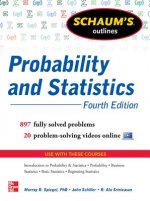
Schaum's Outline of Probability and Statistics
538 Kč -
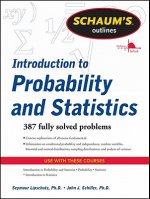
Schaum's Outline of Introduction to Probability and Statistics
652 Kč -
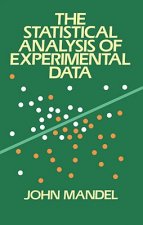
Statistical Analysis of Experimental Data
544 Kč -
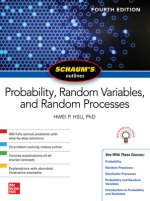
Schaum's Outline of Probability, Random Variables, and Random Processes, Fourth Edition
576 Kč -
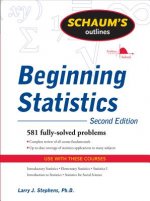
Schaum's Outline of Beginning Statistics, Second Edition
914 Kč -
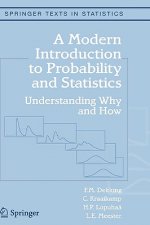
Modern Introduction to Probability and Statistics
1067 Kč -
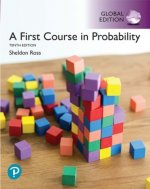
First Course in Probability, Global Edition
2147 Kč -

Manga Guide To Regression Analysis
550 Kč -

Foundations of the Theory of Probability: Second English
342 Kč -
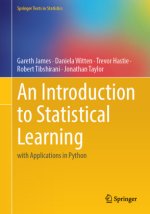
An Introduction to Statistical Learning
3276 Kč -

How to Lie with Statistics
299 Kč -
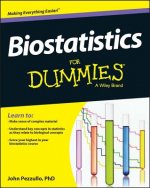
Biostatistics For Dummies
483 Kč -
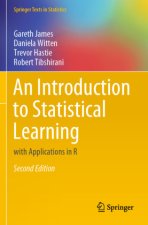
Introduction to Statistical Learning
1328 Kč -

Manga Guide To Statistics
554 Kč -

Probability Theory
223 Kč -

Pearson Edexcel International A Level Mathematics Statistics 2 Student Book
1015 Kč -

Introduction to the Practice of Statistics
2535 Kč -
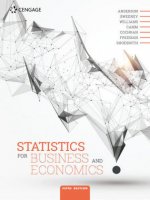
Statistics for Business and Economics
2204 Kč -
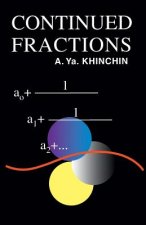
Continued Fractions
204 Kč -

Introductory Econometrics for Finance
1697 Kč -

What Is Random?
436 Kč -
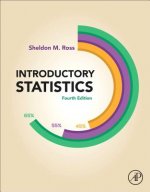
Introductory Statistics
4031 Kč -
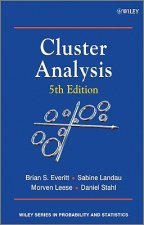
Cluster Analysis
2861 Kč -
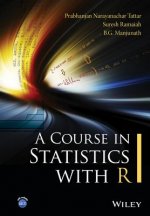
Course in Statistics with R
3338 Kč -
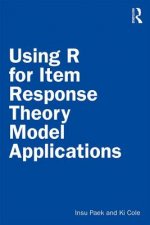
Using R for Item Response Theory Model Applications
1664 Kč -

Logic of Miracles
710 Kč -
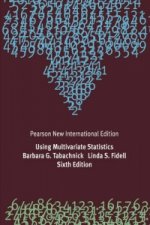
Using Multivariate Statistics
2166 Kč -

Quantum Information Theory and Quantum Statistics
1977 Kč -

Duelling Idiots and Other Probability Puzzlers
574 Kč -
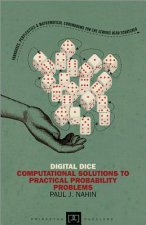
Digital Dice
528 Kč -

Cambridge International AS & A Level Mathematics Probability and Statistics 1 Student's Book
779 Kč -

Statistics Done Wrong
579 Kč -

Discovering Statistics Using R
2374 Kč -
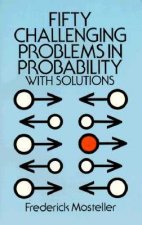
Fifty Challenging Problems in Probability with Solutions
243 Kč -

Introduction to Probability, Second Edition
2413 Kč -
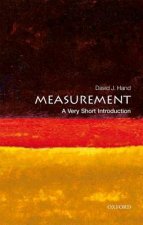
Measurement: A Very Short Introduction
282 Kč -
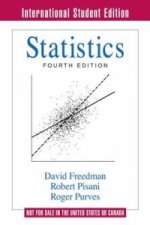
Statistics
1787 Kč -

Head First Statistics
884 Kč -
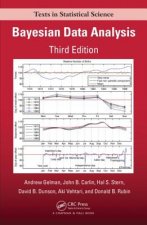
Bayesian Data Analysis
2635 Kč -
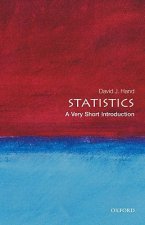
Statistics: A Very Short Introduction
249 Kč -
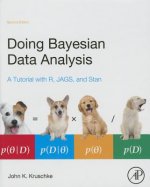
Doing Bayesian Data Analysis
2014 Kč -
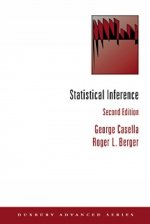
Statistical Inference
2534 Kč -
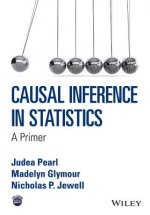
Causal Inference in Statistics - A Primer
1090 Kč -

Data Science Handbook
1341 Kč
Osobní odběr Praha, Brno a 12903 dalších
Copyright ©2008-24 nejlevnejsi-knihy.cz Všechna práva vyhrazenaSoukromíCookies


 Vrácení do měsíce
Vrácení do měsíce 571 999 099 (8-15.30h)
571 999 099 (8-15.30h)